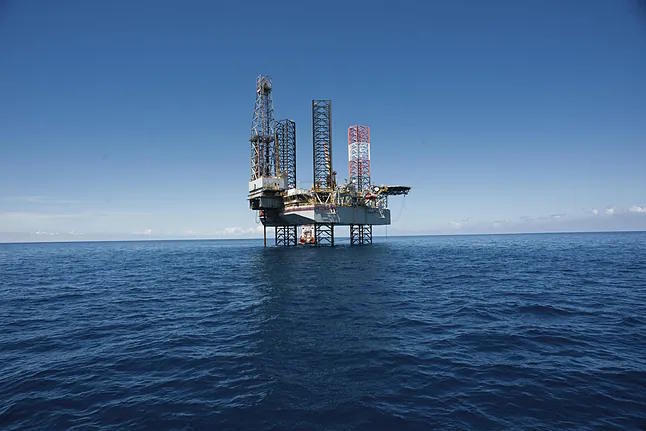Repsol fell more than 2.6% at the opening of the stock market, around 9:05 a.m., to stand at 12.13 euros per share, after it was revealed this Sunday that the President of the United States, Donald Trump, has revoked the permits and exemptions granted to several oil companies, including the Spanish Repsol, to export crude oil from Venezuela.
Washington's decision includes the U.S. oil company Global Oil Terminals, owned by the millionaire and Republican Party donor Harry Sargeant III; the French Maurel et Prom and the aforementioned Repsol, according to three sources familiar with the matter cited by Bloomberg. These companies must cease their operations in Venezuela before May 27, explain the sources.
Washington's decision also affects licenses issued to Venezuelan gas companies that have commercial relationships with the Venezuelan state oil company, PDVSA.
These permits were issued by the U.S. Treasury Department in the form of licenses, exemptions, or letters of compliance to allow them to operate in Venezuela and export PDVSA oil without being affected by the sanctions imposed by Washington.
REPSOL'S PRESENCE IN VENEZUELA
Repsol, which has been operating in Venezuela since 1993, maintains a contractual relationship with PDVSA in Venezuela through the joint venture Petroquiriquire, of which it owns 40%. This collaboration is aimed at the exploitation of oil fields such as Mene Grande, Barúa Motatán, and Quiriquire, and seeks to increase the country's oil and gas production.
In 2024, Venezuela doubled its oil shipments to Spain, reaching two-decade highs. This oil is processed by Repsol in Spanish refineries as part of payment for pending debts, something that until now had been authorized by U.S. authorities under various licenses.
In 2023, the United States relaxed some restrictions imposed on companies operating in Venezuela, allowing joint activities to resume. However, with Donald Trump's arrival at the White House after the 2024 elections, there was uncertainty about whether the permits would be maintained, and the letter sent to Repsol confirmed the change in direction of the U.S. Administration on this matter.
Repsol acknowledges geopolitical risks associated with its equity exposure in Venezuela, amounting to 467 million euros, including investments in projects such as Cardón IV and accounts receivable from PDVSA.
The debt that Venezuela owes to Repsol is mainly linked to PDVSA and has been managed through payment agreements in kind, mainly with oil. As of the end of 2024, the balance of the historical debt amounted to 634 million dollars.
In 2016, Repsol and PDVSA agreed on a credit line of up to 1.2 billion dollars to finance joint operations. Of this line, the outstanding balance drawn (without interest) amounted to 634 million dollars. In 2024, Repsol recovered 166 million dollars as part of the payment of this debt, although there is still a significant outstanding balance.
Due to the geopolitical risk and uncertainty in Venezuela, Repsol has increased its provisions for default risk, reaching 601 million euros in 2024.
Repsol does not receive cash payments for this debt; instead, it receives Venezuelan oil as compensation. This scheme has been authorized by the Office of Foreign Assets Control (OFAC) of the United States, allowing Repsol to amortize the debt through oil deliveries.
Therefore, experts believe that the revocation by the government of Donald Trump of licenses to export Venezuelan oil threatens Repsol's ability to recover this debt, and they estimate that if these restrictions are maintained, operations and the payment mechanism could be severely affected.
Meanwhile, the Minister of Inclusion, Social Security, and Migration, Elma Saiz, has assured this Monday that the Government will stand by Repsol and Spanish companies in the trade war initiated by the President of the United States, Donald Trump.
Saiz, in statements to TVE collected by Europa Press, wanted to send "a message of reassurance" to the public "from the supply point of view" regarding the U.S. tariffs and its decision to revoke Repsol's permit to extract oil from Venezuela.
"I want to send a message of reassurance, of prudence. The Spanish Government is in constant contact with the company (...) It is a moment for more Europe, for a united response, for the strength of the European Union that goes beyond just economic union," she emphasized.
Saiz indicated that the EU will respond to Trump's tariffs "with prudence, but in a proportionate and fair manner". "The public must know that there is a Government that cares, that will be by the side of companies, as we are seeing with Repsol, of the public," she stated.
The minister argued that "a trade war is always bad" and that citizens always end up being harmed. "That is why they have to know that there is a Government that has a very important leadership, has a significant presence in Europe (...). Spain's role is fundamental at this moment, in this very complicated geopolitical context," the minister emphasized, adding that "alarmist messages lead nowhere."
Saiz insisted that the Government is "monitoring the situation" and analyzing responses "proportionate, united, and fair, but with absolute support for the entire productive fabric."
"It is important to send messages of reassurance in the sense that the public does not have to be alarmed about supplies, for example, related to oil," she pointed out.
Regarding the impact that Trump's trade war could have on the Spanish economy, the minister stated that, although trade wars "are not good for anyone," the Spanish economy "is on the right track."
The minister explained that the Ministers of Economy and Industry, Carlos Cuerpo and Jordi Hereu, are in contact with the sectors affected by Donald Trump's decisions.
"Anticipation is important, as well as prudence, because it is not a time to make drastic decisions, but of prudence and calmness, but, of course, also, with the certainty that the response must be proportionate, fair, and united by the European Union," she pointed out.
